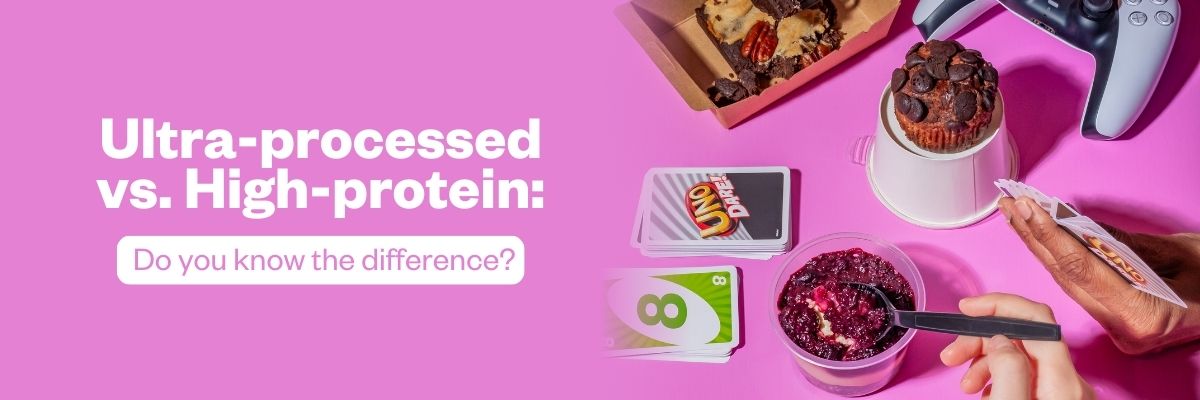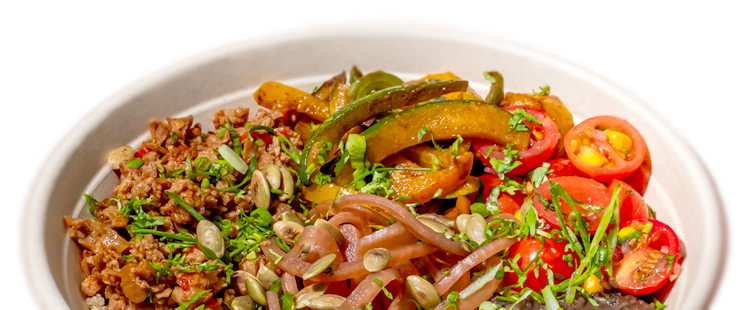In today’s fast-paced world, convenience often dictates our food choices.
This has led to a surge in the consumption of ultra-processed foods, which are readily available but may pose significant health risks. Conversely, high-protein diets have gained popularity for their potential health benefits.
Understanding the distinction between these two categories is crucial for making informed dietary decisions that promote overall well-being.
Defining ultra-processed foods
Ultra-processed foods undergo extensive industrial processing and typically contain ingredients not commonly found in home cooking, such as artificial flavors, colors, preservatives, and emulsifiers. Examples include sugary drinks, packaged snacks, instant noodles, and certain ready-to-eat meals.
These products are engineered for palatability and convenience but often lack essential nutrients. According to the British Heart Foundation, ultra-processed foods often contain high levels of saturated fat, salt, and sugar, which can displace more nutritious options in our diets.
Health implications of ultra-processed foods
Regular consumption of ultra-processed foods has been linked to various adverse health outcomes. A study published in The BMJ found that higher intake of these foods is associated with increased risks of cardiovascular diseases, coronary heart disease, and cerebrovascular diseases.
Additionally, research highlighted by Yale Medicine suggests a correlation between ultra-processed food consumption and a higher risk of mortality, as well as ties to 32 health conditions, including heart disease, mental health disorders, and type 2 diabetes. These findings underscore the importance of limiting ultra-processed food intake to maintain optimal health.
Understanding high-protein diets
High-protein diets emphasize increased intake of protein-rich foods, which are vital for numerous bodily functions, including muscle repair, enzyme production, and immune support.
Sources of high-quality protein include lean meats, fish, eggs, dairy products, legumes, nuts, and certain grains. The Harvard T.H. Chan School of Public Health notes that protein can be obtained from both plant and animal sources, contributing to a balanced and nutritious diet.
Benefits of High-Protein diets
Incorporating adequate protein into your diet offers several health benefits:
- Weight Management: Protein promotes satiety, reducing hunger and aiding in weight control. A high-protein diet can help prevent overeating by increasing feelings of fullness. citeturn0search5
- Muscle Maintenance and Growth: Adequate protein intake supports muscle repair and growth, especially when combined with regular exercise. This is particularly important as we age, to prevent muscle loss.
- Metabolic Health: Higher protein diets may enhance glycemic regulation, contributing to better blood sugar control.
- Bone Health: Protein plays a role in bone health, and consuming sufficient protein can contribute to maintaining bone density and reducing the risk of fractures.
The intersection of ultra-processed and high-protein foods
It’s important to recognize that not all high-protein foods are created equal. The market has seen a proliferation of ultra-processed products marketed as high-protein options, such as protein bars, shakes, and snacks. While they may offer convenience, these products often contain added sugars, artificial additives, and unhealthy fats.
Nutritionist Michaela Sparrow warns that overconsumption of protein, especially from processed sources, can lead to digestive issues and nutrient imbalances. Therefore, it’s advisable to prioritize whole food sources of protein over processed alternatives.
Making informed dietary choices
To optimize health, consider the following strategies:
- Prioritize Whole Foods: Focus on incorporating unprocessed or minimally processed high-protein foods into your meals, such as lean meats, fish, eggs, legumes, and nuts. These foods provide essential nutrients without the drawbacks associated with ultra-processed products.
- Read Labels Carefully: When selecting packaged foods, scrutinize ingredient lists for added sugars, unhealthy fats, and artificial additives. Opt for products with recognizable, whole-food ingredients.
- Balance Your Diet: Ensure your diet includes a variety of nutrients by combining protein sources with ample fruits, vegetables, whole grains, and healthy fats. This approach supports overall health and reduces reliance on processed foods.
- Plan Meals Ahead: Preparing meals in advance can help you avoid the temptation of convenient ultra-processed options. Incorporate simple, protein-rich recipes into your routine to maintain a balanced diet.
Conclusion
Understanding the distinction between ultra-processed and high-protein foods is essential for making dietary choices that support long-term health. While ultra-processed foods offer convenience, their consumption is linked to various health risks.
Conversely, a diet rich in high-quality protein from whole food sources can provide numerous benefits, including weight management, muscle maintenance, and improved metabolic health. By prioritizing whole, nutrient-dense foods and being mindful of processed alternatives, you can enhance your overall well-being and reduce the risk of chronic diseases.


